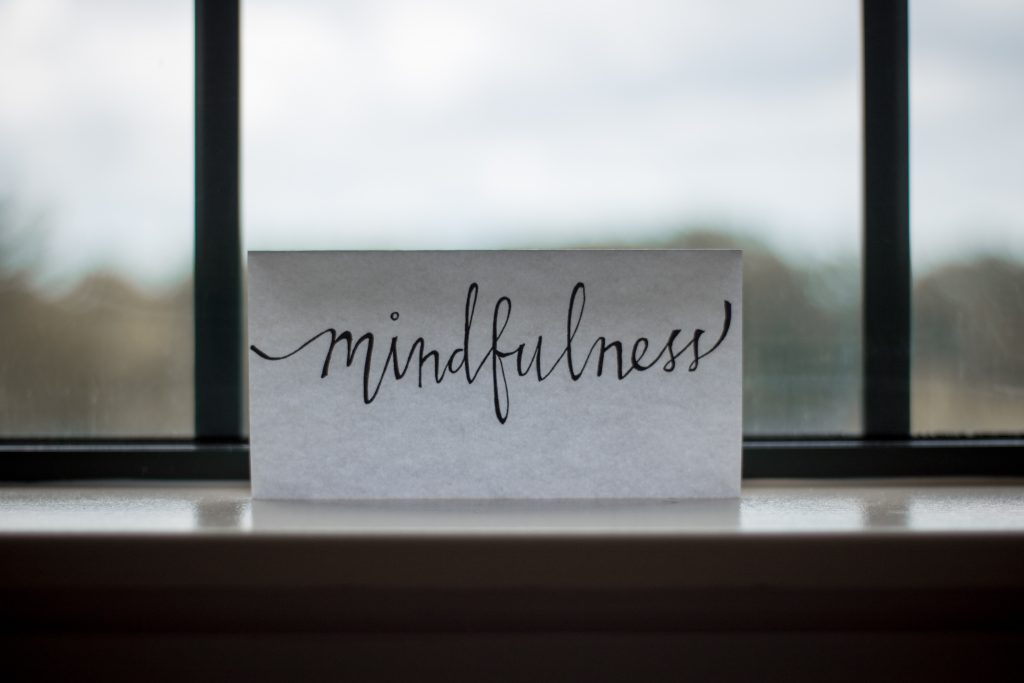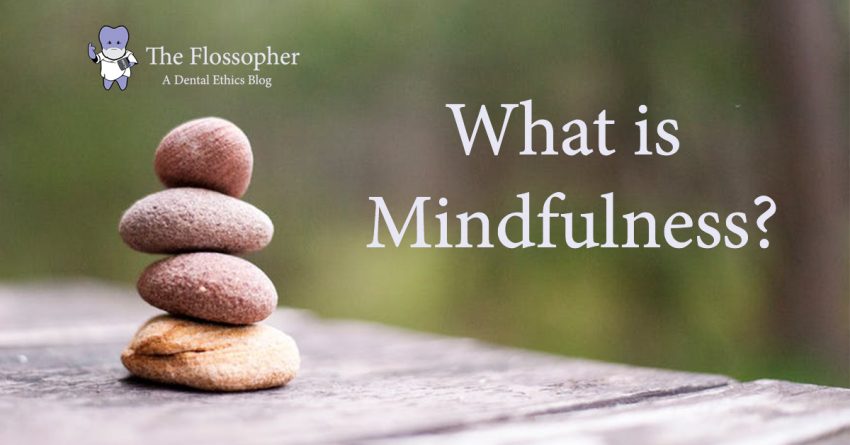What is Mindfulness?
Mindfulness is the idea of increasing one’s conscious awareness of perceptions and centering one’s thoughts to present activities. Not only does it relieve stress and reduce anxiety, it is meant to help us order our lives so we live better. Mindfulness is composed of sensual and rational mediative techniques rooted in mainly eastern philosophy but has many western influences. We will explore the philosophical foundations of mindfulness.

Presentism
We often hear the meme “live in the present.” The concept is that people worry excessively either due to past trauma or future expectations and never do the things they need to do at hand. The anxious dental patient worries about past childhood shots or a possible compilation in the future and never schedules that necessary dental appointment.

The past is not what is the case but what was. The future is what may be and thus also what is not the case. What is the case contains reality and what is not cannot be real at all. To focus on what is real is to think in terms of the present.
You don’t need to tied down by the past because they are in the past and not a reality in the now. Future risks are just that, risks not actualities. If you focus on present motives, you are able to make focused decisions without being influenced by those distractions.
The Self
Increasing awareness is for the sake of making self directed decisions. We want to not be distracted by impossibilities and illusionary thinking that impede us from acting autonomously.
During mediation, we shift our awareness between our sensations (e.g., breathing) and the anxious thoughts. There are many different cognitive behavior techniques from rationally questioning your thoughts or letting them flow like a stone in water. A common theme, however, is to notice that anxious thoughts can be set off to a distance. We become aware through experience that anxiety is separate from us, something we experience not what we are.

Superstitious people may claim an extreme position that people are not physical or mental, but supernatural beings having bodily sensations and thoughts. You are not an anxious person, you are an athma or soul experiencing racing thoughts. Meditation does not logically entail this because thoughts being conceived through language have referential ability; one can be a thought referencing or perceiving an anxious thought. The metaphysical debate aside, it is important to be aware that anxiety is an experience and separate from one’s decision making ability.
Autonomy
To be autonomous is to be an agent of your own will, not a follower. It is not right or wrong to have emotions because the passions impress on us outside our own wills. Kant knew the importance of the passions; they are what give the will content. We cannot act purely out of reason because we wouldn’t have any directive. It is ok to have feelings of fear or anxiety but only through evaluation by reason can they be evaluated at all. Emotions in-themselves do not obligate us. Only through reason can we judge our desires to be obligatory.
Read about practical reasoning and Kantian ethics in Intro to Dental Ethics. Simply following any given fear or emotion means we are acting heteronomously and so not living self-directed lives. We do not have to live through depression or anxiety. We can direct our own lives.
Final Thoughts
The goal of mindfulness techniques are to train us to live self-directed lives and not by depression or anxiety. Monks break through illusionary materialistic culture through years of mediation. Different techniques allow them to explore metaphysical modalities in search for enlightenment. In the eastern tradition, Parmenides has questioned the illusion of time, David Hume the idea of self, and Kant a critique of our reason. Different philosophical traditions but they both help us to live happy lives by examining our lives.
One has to acknowledge that the mindfulness techniques discovered by eastern mediation (yoga) and the Stoics address “software” problems of the mind. They are effective, non-invasive tools for correcting mood imbalance. They are less effective the more severe the chemical imbalance. Patients with server depression or anxiety should seek proper professional diagnosis and treatment.
Ancient philosophical thought has empowered modern psychiatry to help many patients. Dental professionals can use mindfulness techniques not just because they have scientific evidence but also rational report. Patients can find that thinking about the metaphysical concepts in this article can help them take control their own mental impediments.
Author
Dr. Vishnu Burla, DDS, BA Philosophy
Further Reading
Why be a Good Dentist? Learn how to evaluate when emotions are obligatory.
The Happiness Trap by Russ Harris.
Poem by Parmenides.
Of Personal Identity by David Hume.
Grounding of the Metaphysics of Morals by Immanuel Kant.


Facebook Comments